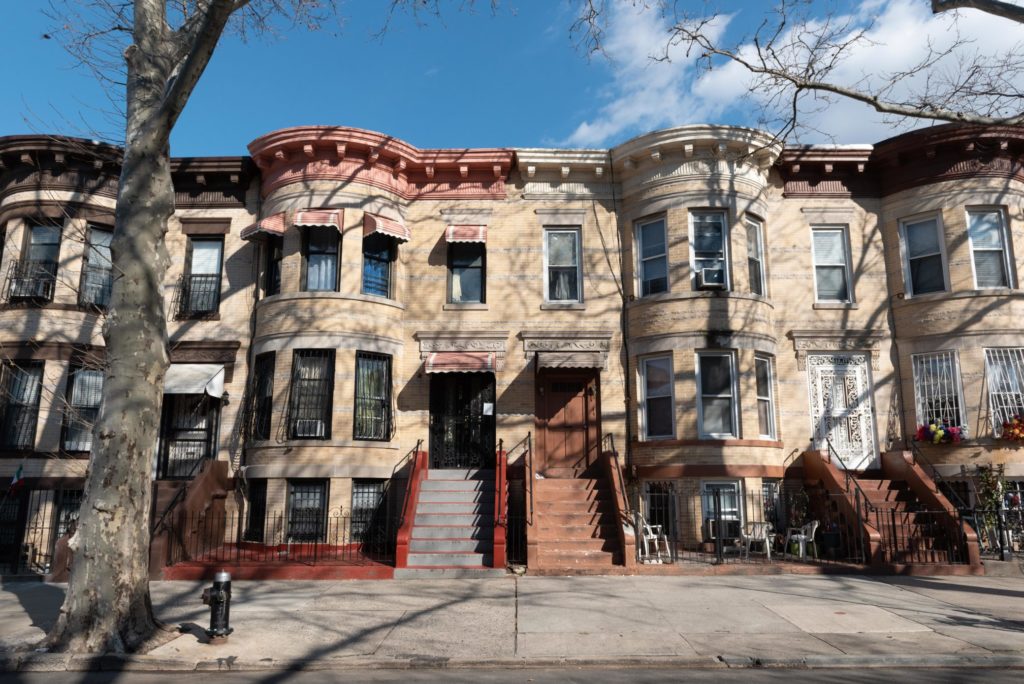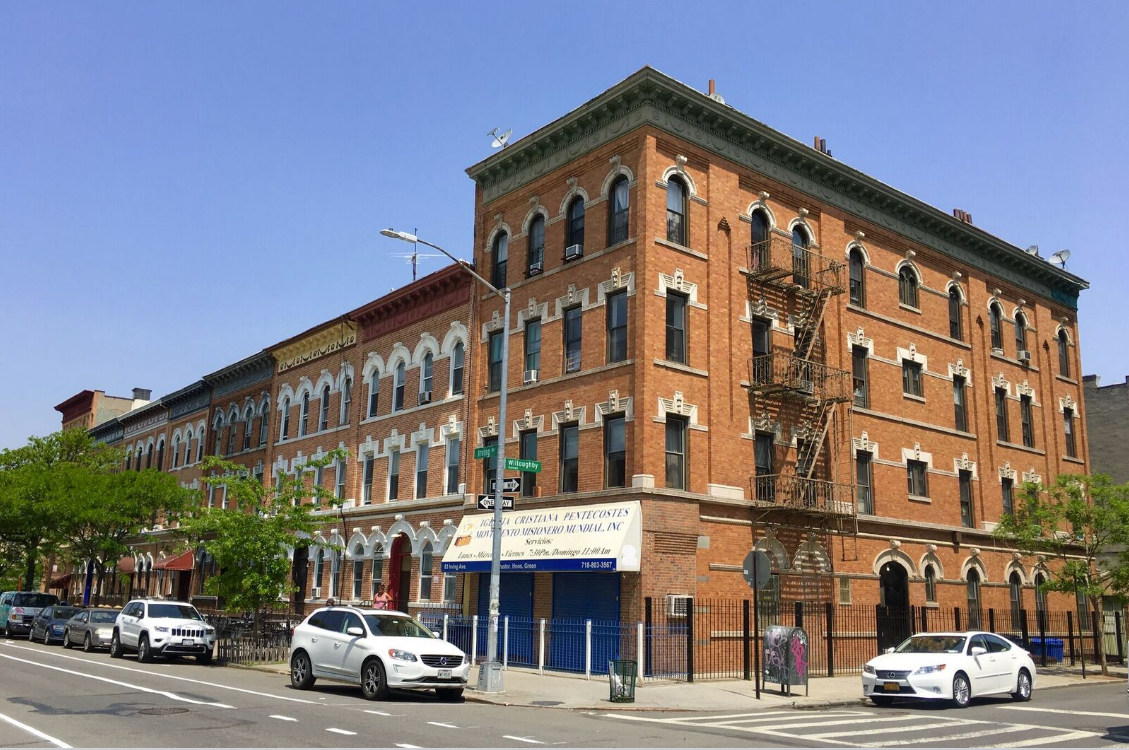With Bushwick’s future at stake, neighbors vie to be heard

Anti-gentrification activists went on the offensive Thursday night in the “Battle for Bushwick,” interrupting a public scoping meeting for the controversial Bushwick rezoning project.
Community members looked on as seven members of the Mi Casa No Es Su Casa collective unfurled banners reading “Battle 4 Bushwick,” “Rezonificación es Violencia” (Rezoning is Violence), and “#NYNoSeVende” (New York is not for sale”).
The protest came as the Department of City Planning listened to input about its Bushwick Neighborhood Plan, a rezoning project that has been met with resistance from residents who are calling instead for the adoption of the Bushwick Community Plan, an alternative proposal designed by local residents and politicians that focuses on downzoning.
